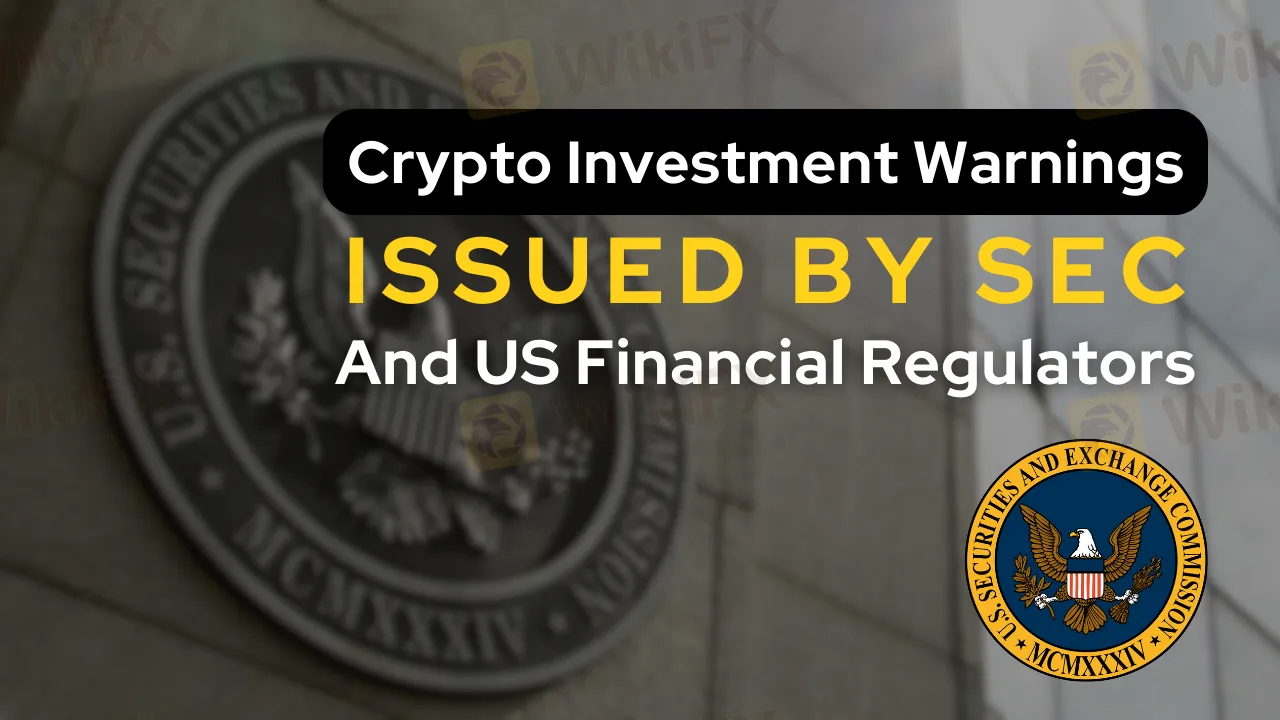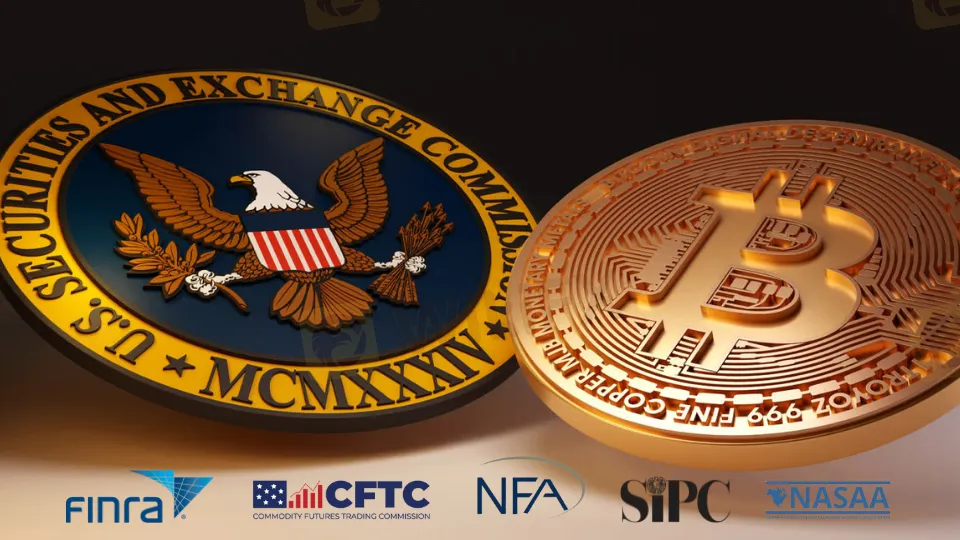简体中文
繁體中文
English
Pусский
日本語
ภาษาไทย
Tiếng Việt
Bahasa Indonesia
Español
हिन्दी
Filippiiniläinen
Français
Deutsch
Português
Türkçe
한국어
العربية
Crypto Investment Warnings Issued by SEC And US Financial Regulators
Abstract:Regarding cryptocurrency assets, the bulletin emphasizes various dangers associated with investing in crypto. "Crypto asset investments can exhibit extreme volatility and speculative nature, and the venues where individuals trade, purchase, sell, or loan these assets may not provide crucial safeguards," the bulletin warns

In light of this year's World Investor Week, the U.S. Securities and Exchange Commission (SEC), along with five other leading financial regulators, has released several cautionary statements regarding the potential risks associated with investing in crypto assets. Their primary message: the inherent risk for individual investors remains considerable when participating in transactions that involve crypto assets.
A Unified Stance on Crypto Risks During World Investor Week
World Investor Week, a global initiative championed by the International Organization of Securities Commissions (IOSCO), is aimed at heightening awareness about the pivotal roles of investor education and protection. As a part of this campaign, the SECs Office of Investor Education and Advocacy (OIEA) unveiled an Investor Bulletin on September 29th.
This bulletin represents a joint effort among multiple financial authorities, namely the SEC, the Financial Industry Regulatory Authority (FINRA), the Commodity Futures Trading Commission (CFTC), the National Futures Association (NFA), the Securities Investor Protection Corporation (SIPC), and the North American Securities Administrators Association (NASAA).

Among the three main themes highlighted in World Investor Week 2023, namely Crypto Assets, Investor Resilience, and Sustainable Finance, the bulletin zeroes in on the perils associated with crypto investing.
Pertinent Points on Crypto Concerns
The bulletin explicitly points out that crypto asset investments can be highly volatile and speculative in nature. Furthermore, platforms facilitating the buying, selling, borrowing, or lending of such investments might not provide essential protections to the investors.
A critical note made by the regulators is that entities offering crypto-related services or investments might not always align with the established legal framework, including federal securities laws. As a result, investors who entrust funds or cryptocurrencies to a crypto entity may unwittingly relinquish their legal ownership rights and could face challenges retrieving those assets.
Adding to these concerns, the bulletin illuminates additional hazards for crypto investors, like encountering unregistered offerings, falling outside the Securities Investor Protection Corporation (SIPC) safety net, and becoming targets for fraud. The growing appeal of crypto assets has seen a parallel rise in scams, with many unsuspecting retail investors facing substantial losses.
Vigilance is Key
The regulators emphasized the importance of investors being proactive. To truly comprehend the crypto components of their portfolios, including retirement plans and other investment accounts, individuals need to carry out thorough research and seek answers.
One of the most potent warnings in the bulletin reads: “The risk of loss for individual investors who engage in transactions involving crypto assets, such as crypto-asset securities, is substantial. Speculative investments should only be made with funds that one can completely afford to lose.”
Those mulling over crypto-related investments are urged to take their time, seek understanding, watch for red flags indicative of potential scams, and not hesitate to ask probing questions.

Disclaimer:
The views in this article only represent the author's personal views, and do not constitute investment advice on this platform. This platform does not guarantee the accuracy, completeness and timeliness of the information in the article, and will not be liable for any loss caused by the use of or reliance on the information in the article.
Read more

First Unfair Trading Case Reported Under South Korea’s Virtual Asset User Protection Act
The Financial Services Commission (FSC) of South Korea has disclosed the first case of unfair trading following the enactment of the Virtual Asset User Protection Act. This law, which took effect in July 2024, aims to regulate the cryptocurrency market and protect investors from fraud and market manipulation.

Upbit Faces Severe Penalties for AML and KYC Violations
Upbit, South Korea’s leading cryptocurrency exchange, faces severe penalties for over 700,000 AML and KYC violations.

BSP Pushes for a Cashless Philippines by 2025
The BSP accelerates cashless transactions, aims for a coin-lite society, eliminates small fund transfer fees, and drives financial inclusion by 2025.

Maya Bank Disburses PHP 68B in Loans, Sets 2024 Record
Maya Bank disburses PHP 68B in loans in 2024, advancing financial inclusion with digital banking innovation, BSP compliance, and secure financial solutions.
WikiFX Broker
Latest News
How Long Can the Dollar Remain Strong?
Forex Price Trend Prediction! | Come be a New Year Price Winner!
HFM NY Special Offer!
How a Promised RM1.4 Million Return Turned into a Costly Scam
First Unfair Trading Case Reported Under South Korea’s Virtual Asset User Protection Act
Cinkciarz.pl Under Fire: Frozen Accounts, Missing Funds
“Predict and Win” Big Rewards! Join the Contest Now
South Korean President Yoon Suk Yeol's Arrest Shakes Markets
Titanium Capital LLC Ponzi Scheme: Henry Abdo Admits Fraud, Impacting Over 200 Investors
South Korea's Crypto Regulation Updates for 2025
Currency Calculator






